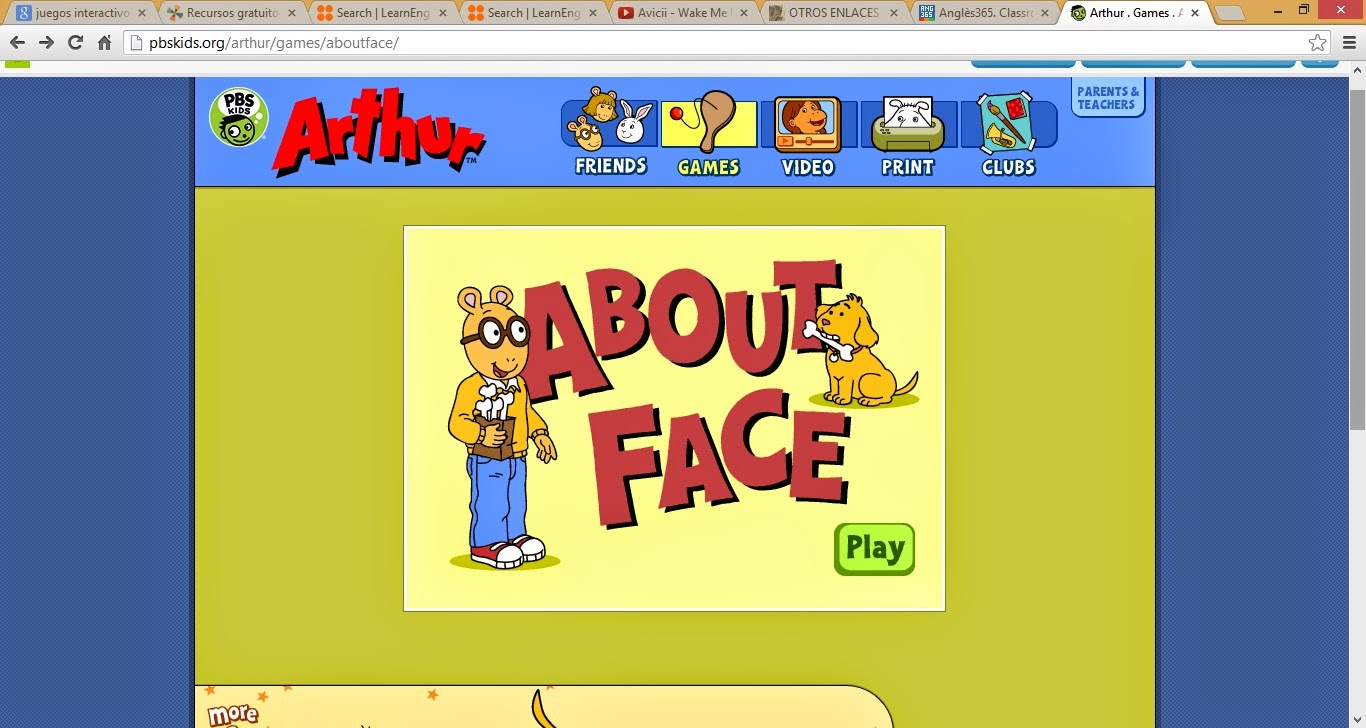Unlocking Worlds: Exploring Arthur Games for Kids

Navigating the digital landscape can feel like a minefield for parents seeking enriching content for their children. Enter the world of Arthur games, based on the beloved PBS Kids character. These interactive experiences offer a blend of entertainment and education, cleverly disguised as fun. But what makes these games so appealing, and how can parents maximize their educational potential?
Arthur Read, the bespectacled aardvark, has been a staple in children's media for decades. His gentle demeanor and relatable struggles have resonated with generations. This popularity has naturally transitioned into the digital realm, with a plethora of online and app-based games designed to engage young minds. These games aren't just about clicking and tapping; they're crafted to cultivate critical thinking skills, promote social-emotional learning, and encourage problem-solving.
The genesis of Arthur games can be traced back to the rise of educational gaming. As technology advanced, educators and developers recognized the potential of interactive media to engage children in learning. Arthur, with his established audience and positive message, provided the perfect platform for these early ventures. The importance of these games lies in their ability to seamlessly integrate educational content into engaging gameplay, making learning a fun and enjoyable experience.
However, as with any screen-based activity, moderation and mindful selection are crucial. One of the main issues surrounding Arthur games for kids, like any children's media, is the potential for excessive screen time. Balancing digital engagement with other activities, like reading and outdoor play, is vital for healthy development. Furthermore, ensuring age-appropriateness and aligning game content with a child's learning goals are essential considerations.
Arthur games encompass a variety of formats, from simple click-and-drag activities to more complex problem-solving challenges. They cover a range of subjects, including reading, math, science, and social studies. For instance, "Arthur's Reading Race" helps children build their reading comprehension skills, while "D.W.'s Arctic Adventure" introduces basic geography concepts. These games offer a diverse and engaging platform for learning through play.
Benefit 1: Enhanced Literacy Skills. Many Arthur games focus on phonics, vocabulary, and reading comprehension, offering interactive ways for children to strengthen their literacy skills. Example: "Binky's Firehouse" helps children learn about fire safety while also reinforcing reading skills through interactive storytelling.
Benefit 2: Development of Problem-Solving Abilities. Games like "Arthur's Thinking Games" challenge players to solve logic puzzles, encouraging critical thinking and problem-solving skills. Example: The "Brain Booster" activities require players to analyze patterns and make logical deductions.
Benefit 3: Promotion of Social-Emotional Learning. Arthur games often explore themes of friendship, empathy, and conflict resolution, helping children develop important social-emotional skills. Example: "The Tough Customers" game explores the complexities of friendship and helps children navigate social situations.
Advantages and Disadvantages of Arthur Games for Kids
| Advantages | Disadvantages |
|---|---|
| Educational and Engaging | Potential for Excessive Screen Time |
| Promotes Social-Emotional Learning | Limited Physical Activity |
| Enhances Literacy and Problem-Solving Skills | Requires Adult Supervision for Younger Children |
Five Best Practices for Implementing Arthur Games:
1. Set Time Limits: Establish clear boundaries for screen time to ensure balanced activity.
2. Choose Age-Appropriate Games: Select games that align with your child's developmental stage.
3. Engage in Co-Play: Play alongside your child to enhance learning and interaction.
4. Discuss Game Content: Talk about the game's themes and lessons with your child.
5. Integrate with Other Activities: Connect game concepts to real-world experiences and other learning activities.
Frequently Asked Questions:
1. Are Arthur games free? Many are available for free on the PBS Kids website.
2. What age are Arthur games appropriate for? Most games are designed for children aged 4-8.
3. Are Arthur games available on mobile devices? Yes, many are accessible via apps and mobile browsers.
4. Do Arthur games require internet access? Some games can be played offline, while others require an internet connection.
5. Are Arthur games safe for kids? PBS Kids prioritizes children's safety and privacy.
6. Can Arthur games be used in educational settings? Yes, they can be valuable tools for classroom learning.
7. How can I find appropriate Arthur games for my child? The PBS Kids website offers a curated selection of games.
8. Are there Arthur games focused on specific subjects? Yes, games cover various topics, including reading, math, and science.
In conclusion, Arthur games offer a valuable avenue for blending entertainment and education. By carefully selecting games and integrating them mindfully into a child's routine, parents can harness the power of these digital tools to foster learning, creativity, and social-emotional growth. The engaging world of Arthur provides a safe and stimulating environment for children to explore, learn, and grow. Encourage your child to embark on these digital adventures and unlock a world of learning through play.
Dominate the pitch fifa 22 laptop requirements
The unsung elegance of womens surgical bouffant hats
Mastering the art of rap battle roasts













